November 21, 2019
Disabled And Here: Interview with Rachelle
Hi Rachelle! How would you like to introduce yourself? Hello! Professionally, I’m a caterer right now. So that’s what pays the bills. I do a lot of volunteer work. I’m active within political circles and I’m also active in food justice.
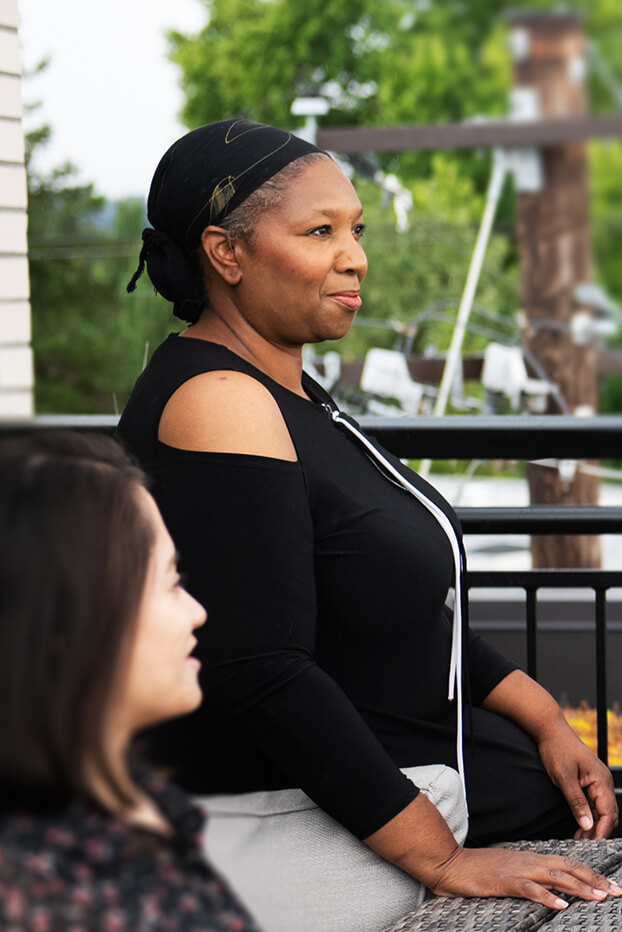
Fellow Disabled And Here participant Sophia is out of focus, but can be seen in the right corner.
For people who aren’t familiar with food justice, can you tell us a little bit about what that is? A lot of people are familiar with labor rights or animal rights, and what food justice does is bring those things together, also in combination with studying the trends of food: how food is used to disenfranchise people, how food can be used as a tool against people.
Food justice is about choice. A lot of people have diets related to their ethnic backgrounds, and so what food justice does is attempt to bring everything into harmony, so that people have sufficient food in the quantities that they need and the types of food that are good for their community.
How do you work within and advocate for food justice? Whew, a lot of different ways. The thing that I find at present that’s so difficult about food justice is there’s so many different areas you can work in. That’s what also attracts me to it. It has a component of dealing with labor. It has a component of dealing with immigration.
We pay slave wages to the people who produce our food. And then we take that same food that starts out pretty good – if you can remove some of the chemicals and the GMO – and then we take it and produce things like chicken nuggets and put that in communities of color where people are fighting obesity and high blood pressure on top of all the other stresses in life. And we have food swamps.
What I’m trying to do right now is to bring food justice to communities that are marginalized, especially the Black / African-American community and Indigenous communities. I’m trying to make sure that more of the food is plant-based so we can stave off some of the health problems that are huge in this community. I mean 50% [more likely] obesity on reservations and diabetes, because people don’t have access to the fresh things. And when they do have a Whole Foods or New Seasons in their neighborhood, it’s too expensive.
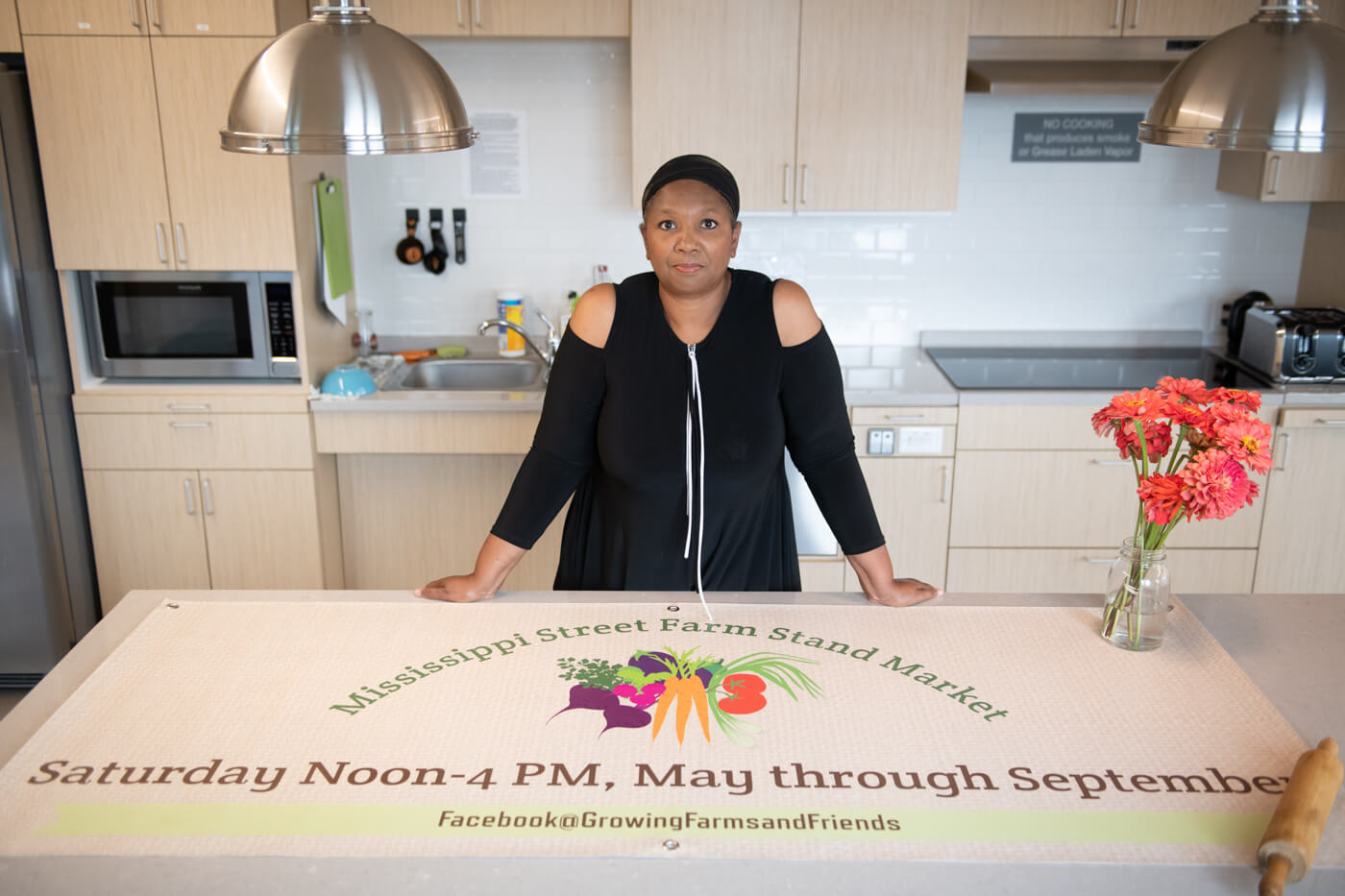
I know you run a farmers market for BIPOC too! Can you share more about that? Yes, that just started this year in mid-season. I had a couple of setbacks in the beginning of the year and I thought it would start up much earlier. I thought I would be producing produce that I could bring to market. I didn’t get a chance to plant because some of my materials went missing, and so I wanted to just wait another year, and I finally decided no, the community needs this now.
I decided the location should be Mississippi Avenue. One, because I had a connection to that community. So my brother-in-law has the last Black-owned building on that block – it’s a fraternal lodge called the Sons of Haiti. So that gave me an in to be able to access the street space and I applied for a permit and got it.
The other thing that was really nice about that was just taking back space – it’s a very gentrified area. And then I invited farmers of color and people of color to come along with me and to just be out there and sell our vegetables, and I produced bread and some spreads and we had a great time. It was very much a learning curve.
There were people who removed the barriers [to drive] through the market. It was quite interesting. Not in a good way – I didn’t realize that people would do that.
Uggh. What was it like growing up in the Pacific Northwest? How would you compare it to other places you’ve lived? I was actually born in Seattle, Washington. I was born in what is now called the International District, which then was called Chinatown. That was due to redlining.
So we had a couple of options of where to live and my dad thought that that would be the best place for us. I really enjoyed having that be the place that I started out because it was a very diverse community. And when I came to Portland, I was just a toddler, like three years old, three and a half, and I started kindergarten here. It wasn’t very diverse at all. So that was a big change for me.
Being in the Pacific Northwest as an adult is sometimes shocking for me. I’m really surprised that a place that calls itself so progressive has a lot of barriers for people of color and marginalized people, people with disabilities.
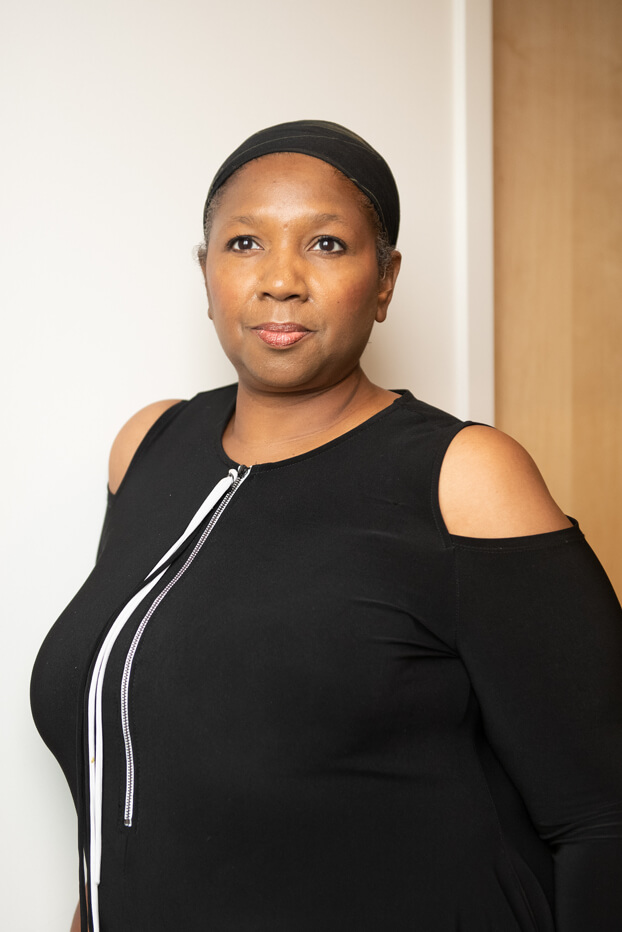
After I lived in Portland, I went to Washington, DC Metro area, and Maryland. And I wouldn’t call DC or Maryland progressive at all. However, they’re very forward-thinking and most people don’t have the unemployment issues, the barriers that they have here.
I was really shocked when I came back [to Portland] – I guess I didn’t notice when I was young that a lot of people are just resource-deprived. It becomes an option which population you want to serve. People are not ashamed to say, “That isn’t in the budget.” If your priorities are not showing up in your budget, it’s because maybe you’re not being honest about your priorities.
Is there anything you wish people understood better about disability or accessibility? Let’s start with the whole concept of disability. I believe in the social concept of disability, that disability is actually created by [society]. The fact that someone doesn’t have a wheelchair ramp in a location or that the sidewalk doesn’t accommodate a wheelchair, is just making it impossible for people to be productive, to have jobs, to get where they need to go. That is totally unnecessary.
The barriers that people put in place, whether they’re intentional or unintentional, cause the disability. Sure, some of us are born different, but what causes the inability to interact with society is simply because [non-disabled people] adjusted the entire world to [their] liking.
Just to give you a really common example that most women can identify with because we don’t tend to be six feet and taller: I can’t see the peephole out of my door. When someone knocks on my door and I want to know who it is, I’m like, "Who is it?" But I can’t see them. So I get on a step and I try and look out of the peephole to see them. Who built this door? And what giant is this door for?
These are the kind of things that people can readily identify with, that as we age that we need to have different things in our restrooms, we need to have [grab] bars, but they don’t see that they’re putting these barriers in place for other people.
You have an issue with your hearing. You can’t hear them, and they say, "Well, you know, I was in chorus when I was in high school, so I know that I have a really loud voice and everyone can hear me." No, no. Use the mike!
All these things are disenfranchising. You’re sitting there in a meeting, hypervigilant, trying not to be noticed, but you’re not getting what other people are getting out of the meeting. And a lot of people are sitting in the front because they are needy and they want a lot of attention and they’re not reserving that space for people who need wheelchair access. People who may need a note-taker, people who want to sit next to their service dog. Also folks who don’t understand what a real service dog is, that they may alert during a program and your job is not to tell the alerting dog to be quiet. Your job is to find out what that person needs.
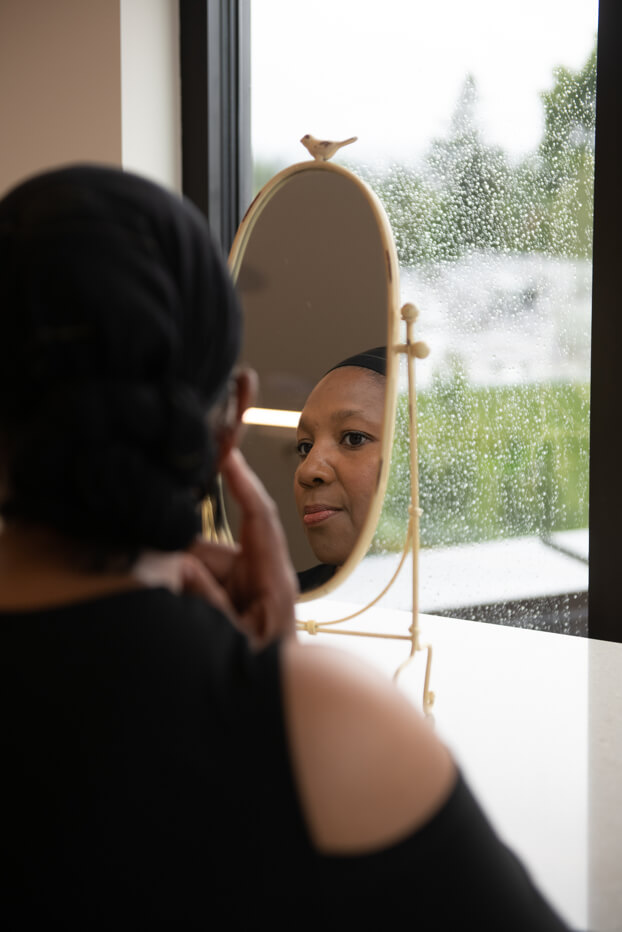
I recently had an incident where I needed some assistance. And so I had to not be prideful and ask for the assistance I needed. Someone who was not completely aware of my situation – although I do talk about my issue with being infusion and transfusion-dependent – said, "Let me read the definition of disability to you," and then looked over at me and said, "Does she look disabled?"
And no one thought that was odd. Then the other person they were speaking to acknowledged that I had bilateral hearing aids. I never said that my bilateral hearing aids were [the] issue, but the assumption that what was visual was what my issue was.
The other assumption is that I have to share what my issue is. I don’t have to. The fact that I sometimes may disappear for a few days makes me tell people what’s going on with me so they don’t think that I’m shirking my responsibilities or just ghosting. So I may let folks know, "Hey, you know, I’m feeling like I might need to take the hospital ‘vacation’ and if I’m gone for a couple of days, the hospital has phones, they have wifi."
I find that there are a lot of people who will use any excuse to disenfranchise people. So we feel like we have to be quiet. We can’t tell anyone that we have an issue, and therefore when we do have an issue, then they’re, "Oh, they’re just making it up." We can’t just keep recreating environments for folks who are able-bodied.
And the funny thing is, when you ask someone, "Hey, is this going to be captioned? Are you going to describe what’s happening for folks? Are you going to use an interpreter?"
"Oh, we don’t get many folks who are disabled in here." Of course you don’t. Why would they come to be ostracized? So of course they don’t come. Why would they?
For sure. On a totally different note, what are some things you do to relax or recharge? Garden, plant things, watch things grow. Listen to music. Sometimes dance, silly dances. A lot of baking.
But really I just love to be out in the garden and plant things and watch things grow. I like to be surrounded by beautiful things at all times, I’m high-maintenance in that way.
I always look forward to spring and summer. I’m not so crazy about fall because I don’t see as much beauty, but that’s when I try and indulge in book reading and you know, drinking my teas and just enjoying what fall has to offer. But I really don’t like fall.
Totally fair. Is there anything you’d like to wrap up with? I would say that making spaces accessible is everyone’s job. And people really need to take a look at their spaces and make sure that they’re doing what needs to be done and not look at it as a burden, and not make people come to you and say, "Hey, this is what you need to do."
Take a look around and do 10 things that don’t cost anything. Start putting on your website images with [alt text descriptions] so [screenreaders] can read them. That’s not a big deal to do that. Even just putting the description below the picture. “This is a picture of a woman holding a cup. The woman is outside in the sun.” Things like that that are really simple.
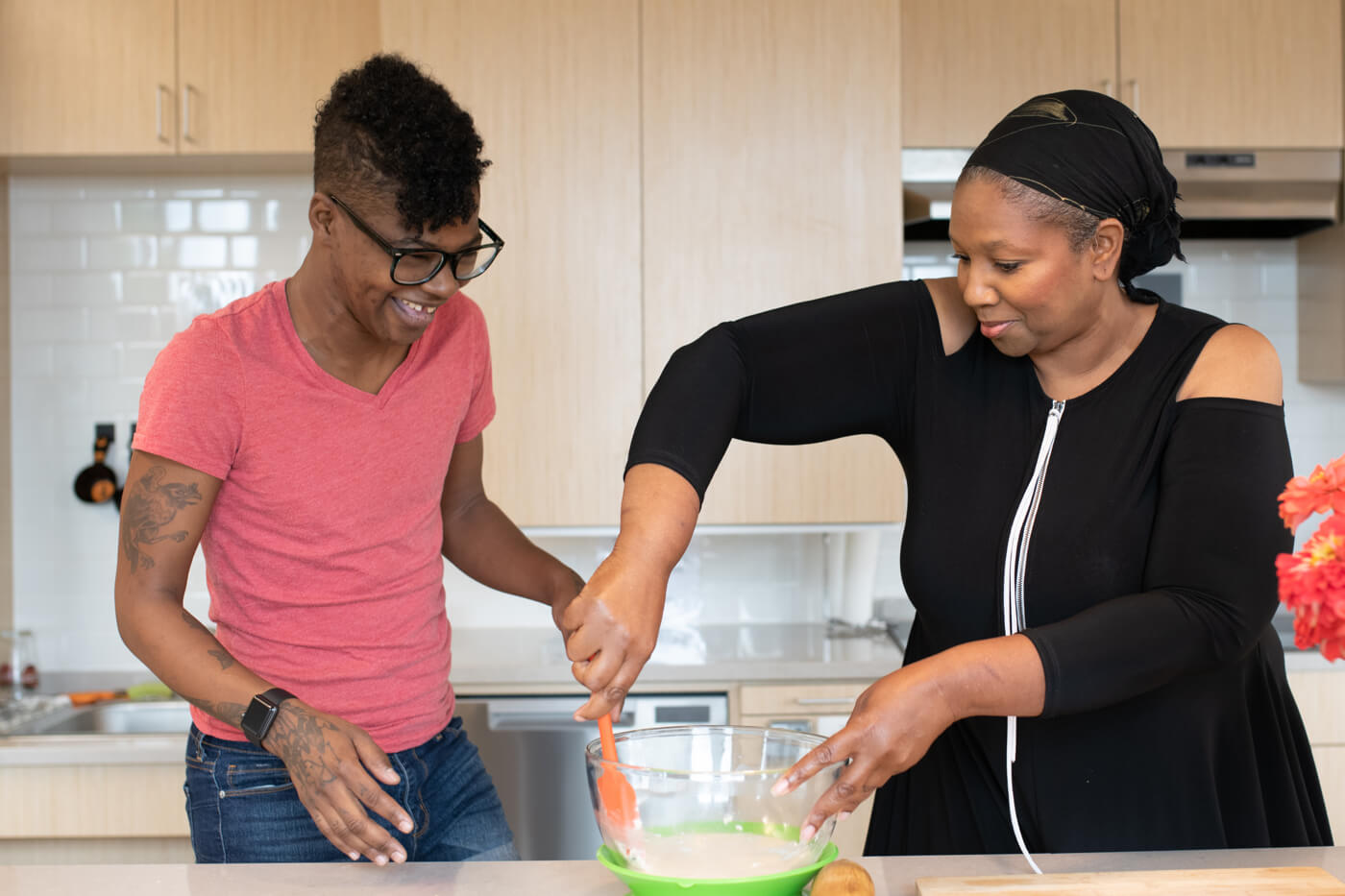
Going forward, what are some ways that people can support and keep up with you? Ooh, I’m having trouble keeping up with myself these days. I’m publishing a plant-based cookbook based on my family’s journey across four continents. It’s going to be fun, I’ve got a lot of recipes in there.
You can go to a Facebook page called Mississippi Street Farm Stand Market and find out about farm market days. Now you may think it’s winter and there’s not going to be any events, but actually we have a couple in November on the 16th and the 30th, at the Rebuilding Center parking lot!
This interview has been edited for clarity and length.